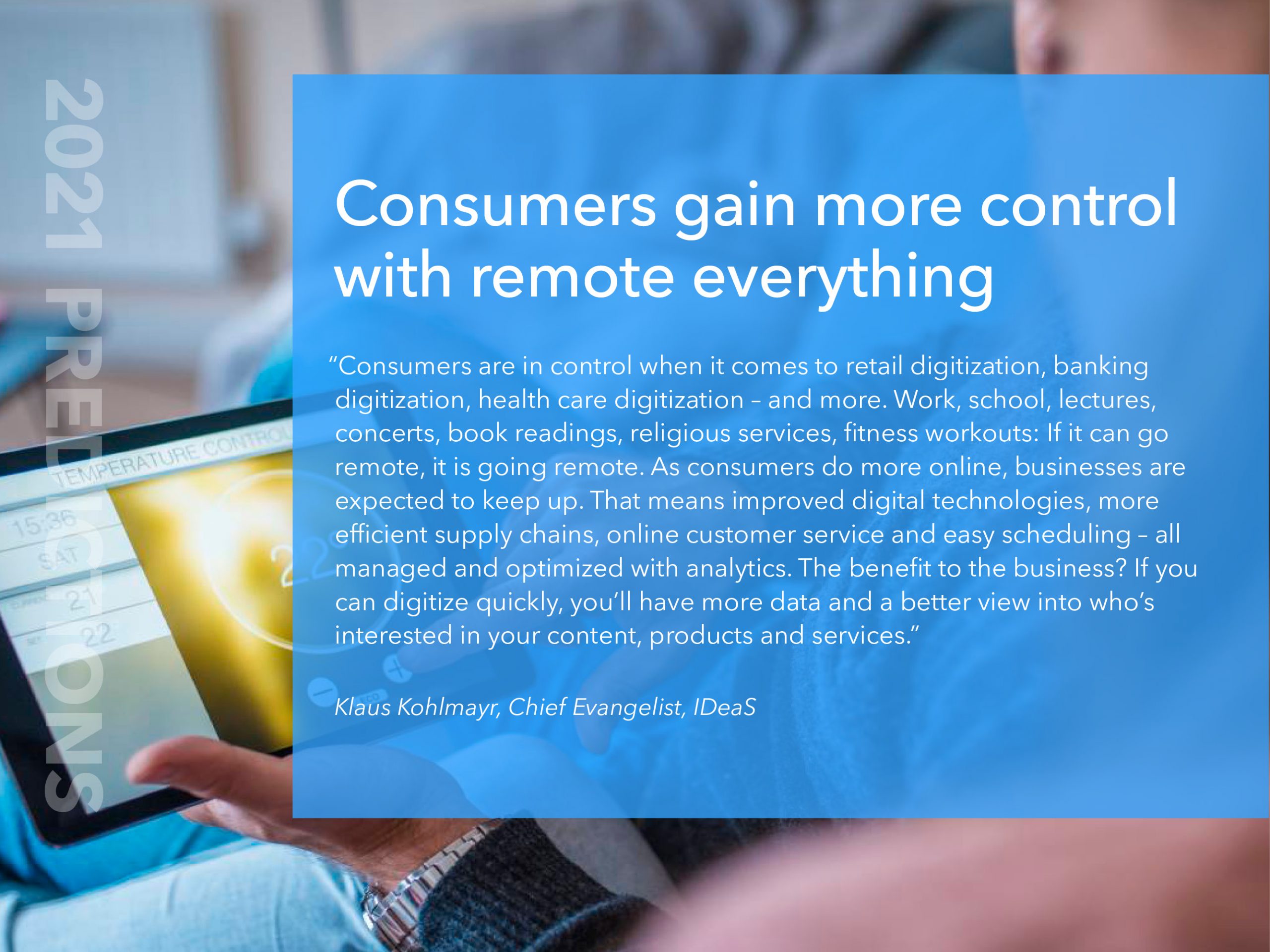
Consumers gain more control with remote everything
“Consumers are in control when it comes to retail digitization, banking digitization, health care digitization – and more. Work, school, lectures, concerts, book readings, religious services, fitness workouts: If it can go remote, it is going remote. As consumers do more online, businesses are expected to keep up. That means improved digital technologies, more efficient supply chains, online customer service and easy scheduling – all managed and optimized with analytics. The benefit to the business? If you can digitize quickly, you’ll have more data and a better view into who’s interested in your content, products and services.”
Klaus Kohlmayr, Chief Evangelist, IDeaS

3 Comments
I agree with this 100% especially since this is the 2nd time this type of miscalculation has happened. This was the same issue with Hadoop. Hadoop wasn't initially designed or engineered to run analytics it was designed to handle traditional database type of storage, queries, reports, and applications. Then one day someone thought they could run all these systems and applications on Hadoop while at the same time run analytic workloads as well. That didn't turn out so well because the analytics needed all the compute and memory resources of the Hadoop cluster and so everything else stopped running. The same problems and challenges that IT ran into when trying to use Hadoop for what it was designed for (data compute on a big scale) and analytics at the same time are the same problems cloud architects are running into now when attempting to run everything including analytics in the same architecture/environment they are running their other workloads and processes. This approach didn't work in the past and won't work in the cloud either. Don't get me wrong you will be able to run any workload in the cloud, but to do analytics successfully you have to have data in a different format and a separate environment with more compute and memory resources then you typically need to run traditional workloads.
Thanks for a fun, informative read, Alison. Maybe you'll do a follow-up piece next January to see how these predictions held up. They seem spot-on to me, and hopeful!
It is very fun, it will be useful to us.